GED GED-Reading - GED Reasoning Through Language Arts
-- Exhibit–
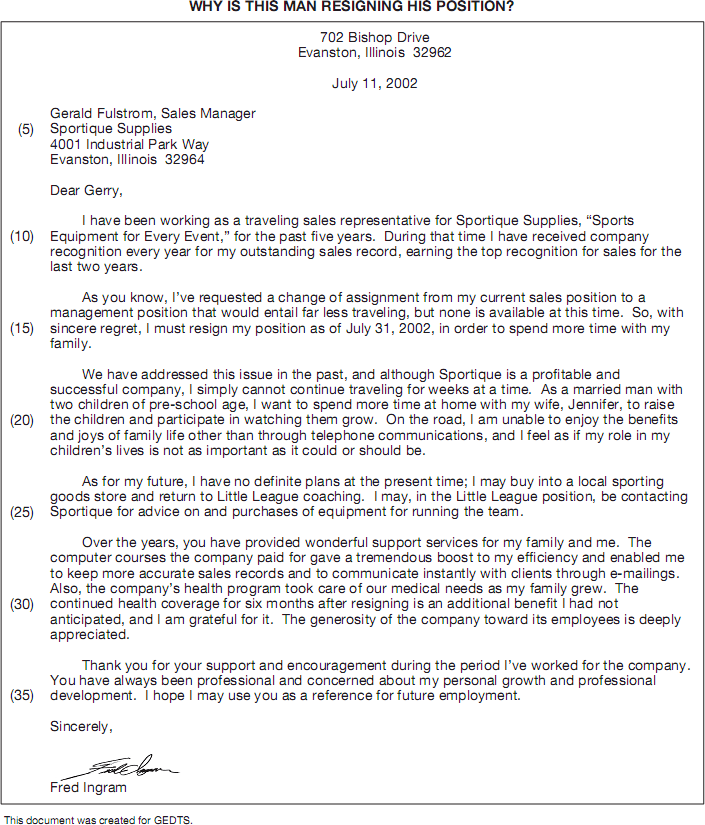
-- Exhibit --
What does Fred Ingram imply when he says, “We have addressed this issue in the past†(line 17)?
-- Exhibit–
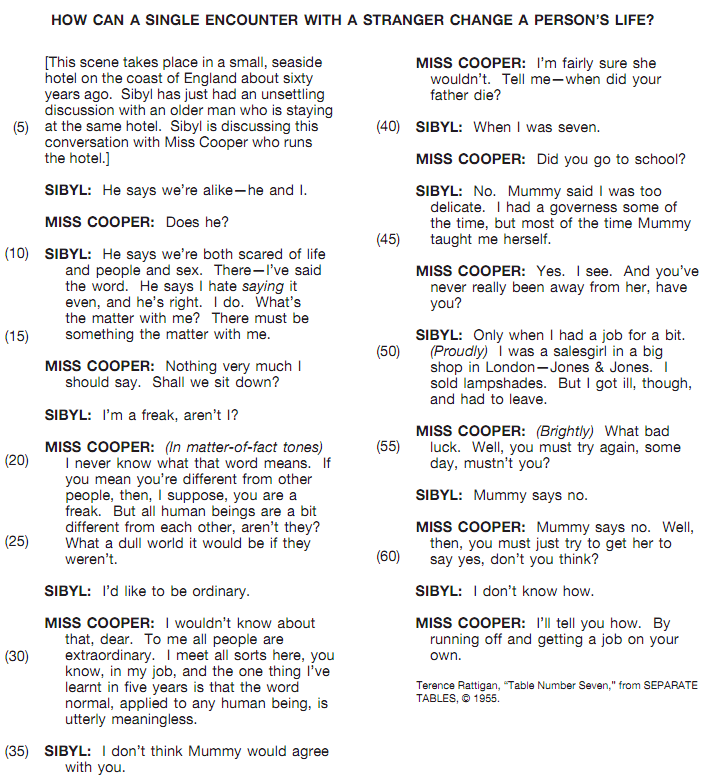
-- Exhibit --
At the end of the play, Sibyl directly disobeys her mother’s wishes and refuses to leave the dining room when her mother orders her to leave.
Although this seems like a minor event, why does the play end with this scene?
-- Exhibit–
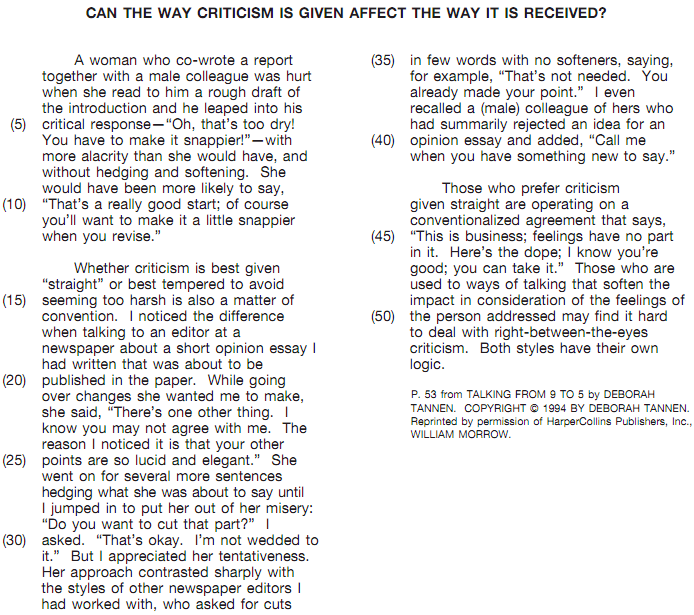
-- Exhibit --
Why does the editor (line 27) of a newspaper hedge about the changes in an opinion essay the author has written?
-- Exhibit–
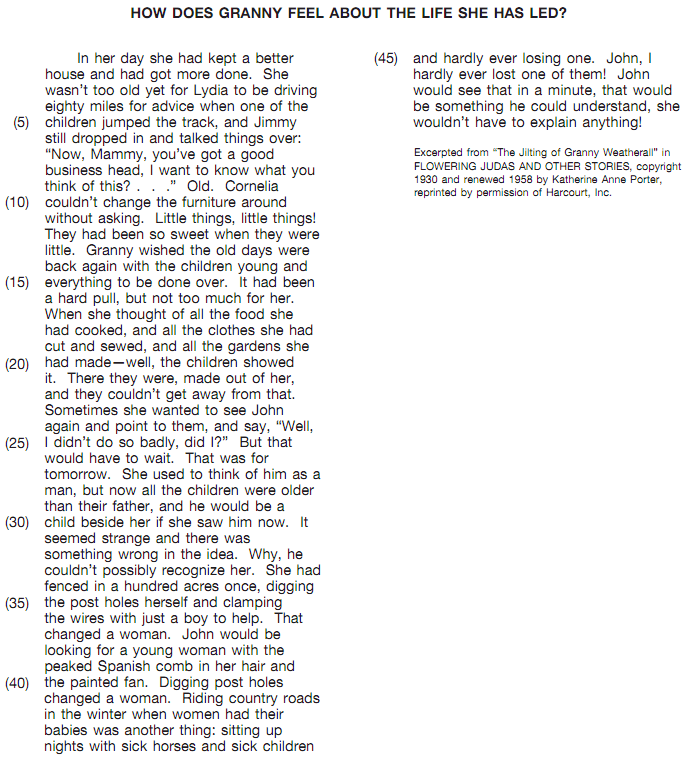
-- Exhibit --
Granny’s name is "Weatherall"Based on the information about her in the excerpt, why is this a good name for her?
-- Exhibit–
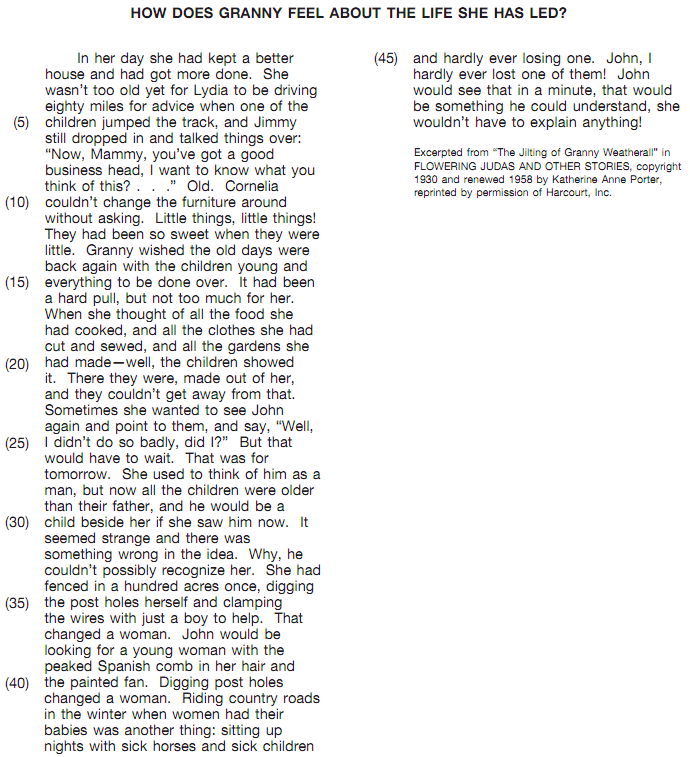
-- Exhibit --
Based on Granny’s character as revealed in this excerpt, how might Granny react if her children tried to put her in a retirement home?
Exhibit:
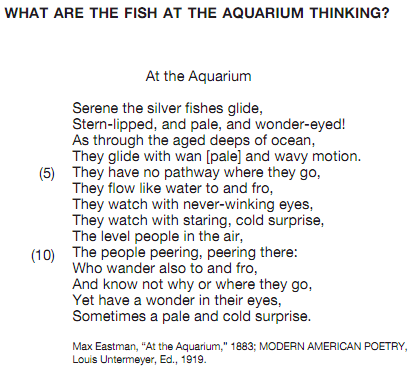
Where are the fish the speaker is describing?
-- Exhibit–
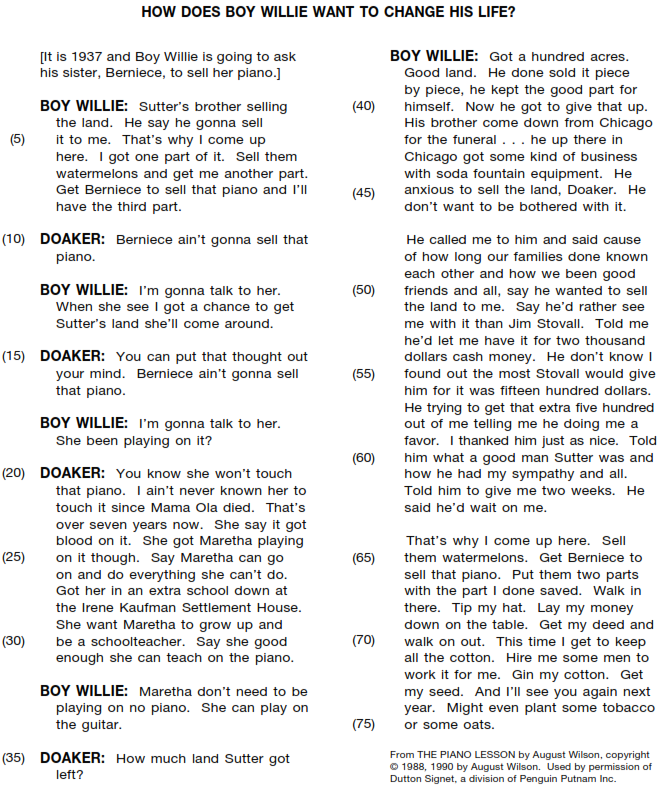
-- Exhibit --
What can the reader infer from Boy Willie’s statement, "Maretha don’t need to be playing on nopiano.She can play on the guitar" (lines 32-34)?
-- Exhibit–
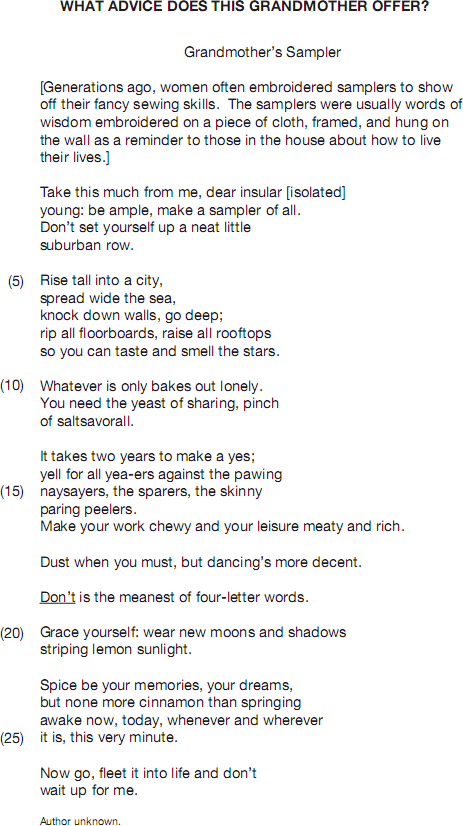
-- Exhibit --
What does Grandmother mean when she says, “Don’t is the meanest of four-letter words†(line 19)?
-- Exhibit–
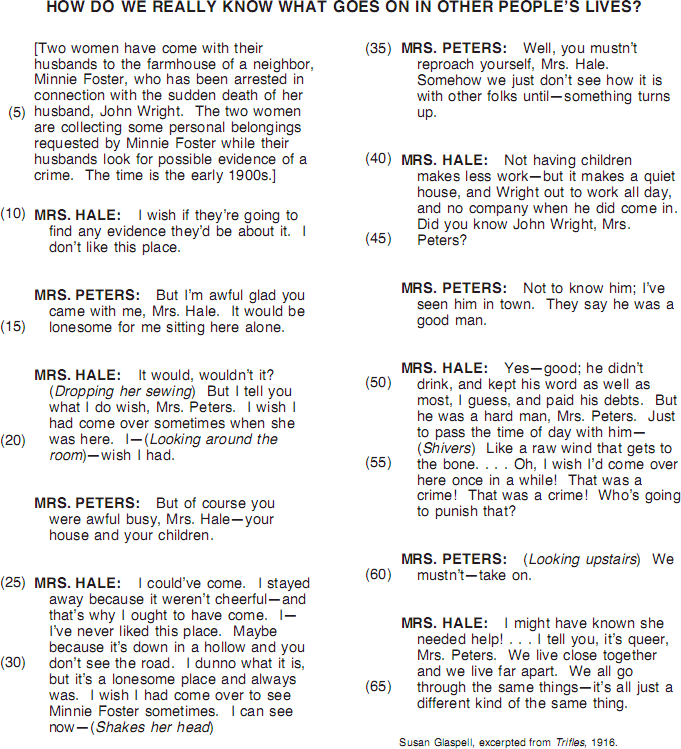
-- Exhibit --
What is meant by Mrs. Hale’s comment, “I might have known she needed help†(lines 61–62)?
-- Exhibit–
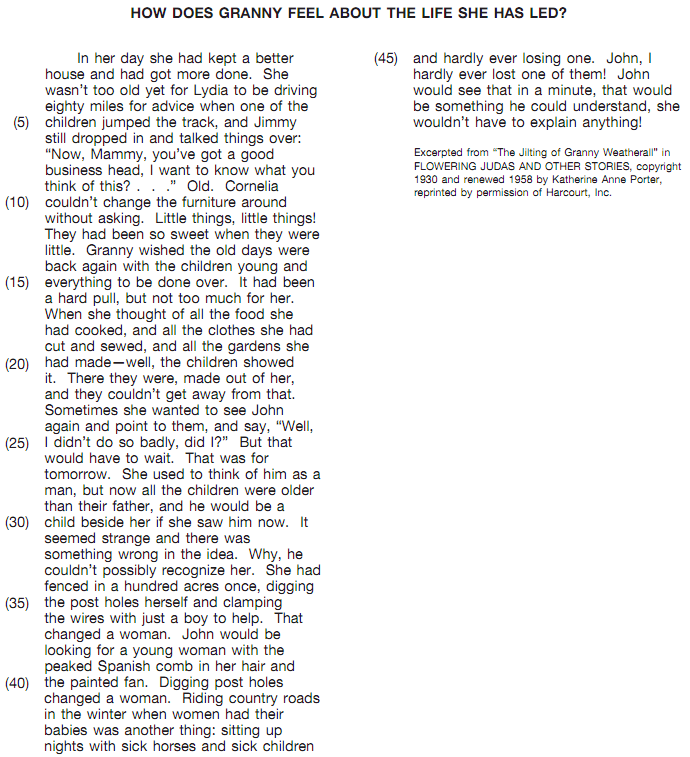
-- Exhibit --
One critic wrote of this author that "some of her [the author’s] stories . . . deal with the crises of individuals who must cope with the disappearance of order."
Based on the information in this excerpt, how does Granny’s life support this critic’s observations?



